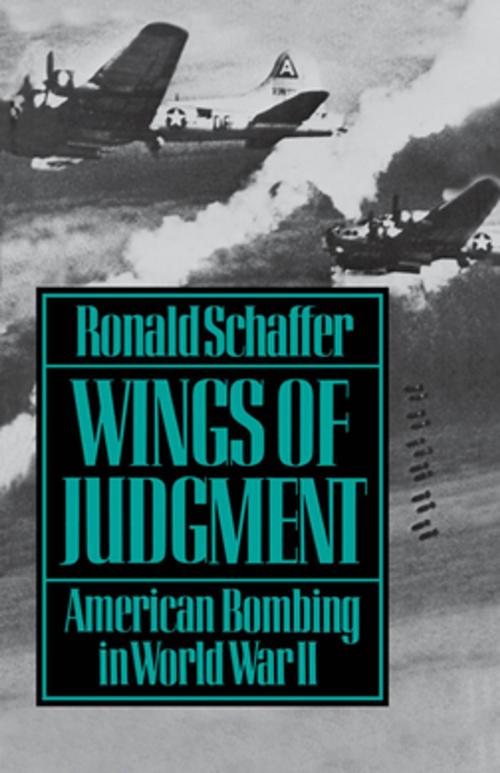Wings of Judgment
American Bombing in World War II
Nonfiction, History, Americas, United States, 20th Century, Military, World War II| Author: | Ronald Schaffer | ISBN: | 9780199878970 |
| Publisher: | Oxford University Press | Publication: | September 29, 1988 |
| Imprint: | Oxford University Press | Language: | English |
| Author: | Ronald Schaffer |
| ISBN: | 9780199878970 |
| Publisher: | Oxford University Press |
| Publication: | September 29, 1988 |
| Imprint: | Oxford University Press |
| Language: | English |
World War II--"the good war"--is here viewed from a new angle of vision, one that sheds fresh light on how major decisions were reached. More than just a book on the strategy and outcome of American bombing in World War II, Wings of Judgment tells about choices in war, decisions that determined whether hundreds of thousands of people lived or died and whether famous cities and great monuments of civilization survived or were destroyed. It is about the bombing of Dresden and Berlin and of dozens of cities and towns all over Germany and about the preservation of Rome and Florence. It is about the incineration of Tokyo, the bombing of Hiroshima, and the sparing of one of Japan's most beautiful and holy places, the city of Kyoto. Describing U.S. air raids that terrified inhabitants of enemy nations and citizens of enemy-occupied countries, it raises serious questions about the military and moral effects of American bombing. It also tells of American efforts to avoid killing civilians needlessly. Taking us behind the scenes at military headquarters, Schaffer shows that even the toughest warriors occasionally found themselves offering moral arguments for their actions, arguing that they were made right by enemy atrocities, by the justness of the Allied cause, and by the numbers of lives of American servicemen that Allied bombing might save.
World War II--"the good war"--is here viewed from a new angle of vision, one that sheds fresh light on how major decisions were reached. More than just a book on the strategy and outcome of American bombing in World War II, Wings of Judgment tells about choices in war, decisions that determined whether hundreds of thousands of people lived or died and whether famous cities and great monuments of civilization survived or were destroyed. It is about the bombing of Dresden and Berlin and of dozens of cities and towns all over Germany and about the preservation of Rome and Florence. It is about the incineration of Tokyo, the bombing of Hiroshima, and the sparing of one of Japan's most beautiful and holy places, the city of Kyoto. Describing U.S. air raids that terrified inhabitants of enemy nations and citizens of enemy-occupied countries, it raises serious questions about the military and moral effects of American bombing. It also tells of American efforts to avoid killing civilians needlessly. Taking us behind the scenes at military headquarters, Schaffer shows that even the toughest warriors occasionally found themselves offering moral arguments for their actions, arguing that they were made right by enemy atrocities, by the justness of the Allied cause, and by the numbers of lives of American servicemen that Allied bombing might save.















